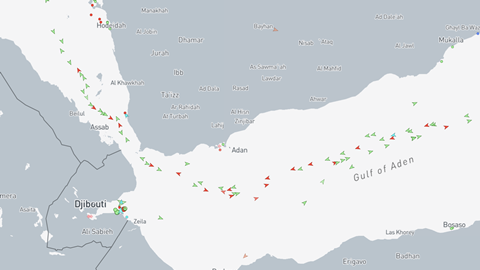Fresh produce suppliers face extra transit times and logistical hurdles, which could prove impossible to live with for those who export more perishable product lines
Fresh fruit and vegetable supply lines into Europe are at serious risk of delays and disruption as a result of the recent mass rerouting of shipping services away from the Red Sea.
According to several different sources, the immediate impact will be extra costs and longer journey times for suppliers that usually ship their produce via the affected route – either to or from Europe.
And for key seasonal suppliers who need to land their products in the market at a specific time, this represents a major logistical challenge.
“For most markets east of Suez, topfruit and some root vegetables exported from northern and southern Europe will suffer disruption in the programmes,” predicts Steve Alaerts, partner at Antwerp-based Foodcareplus.
“The mandatory detour route will result in up to two weeks of extra lead time, which means there will be no market arrivals for the same period.
The ripple effect of that initial blockage will lead to further disruption for the next few months at least, he tells Fruitnet.
“There is also an export interruption in the second half of January, because ships returning from Asia are not arriving in Europe in time to load new exports, meaning that from mid-March, there will again be interruptions in arrivals at the destination markets.”
By then, he predicts, carriers will probably have restored some sailing schedules by deploying extra sailing capacity to maintain the weekly calls.
But for products with shorter shelf-life, there is much less time to wait. “The situation is downright dramatic for more sensitive types of fruit and products, and programmes will have to be stopped unless they switch to airfreight.”




